Arm and UNICEF: A Transformative Partnership to Bridge the Digital Divide
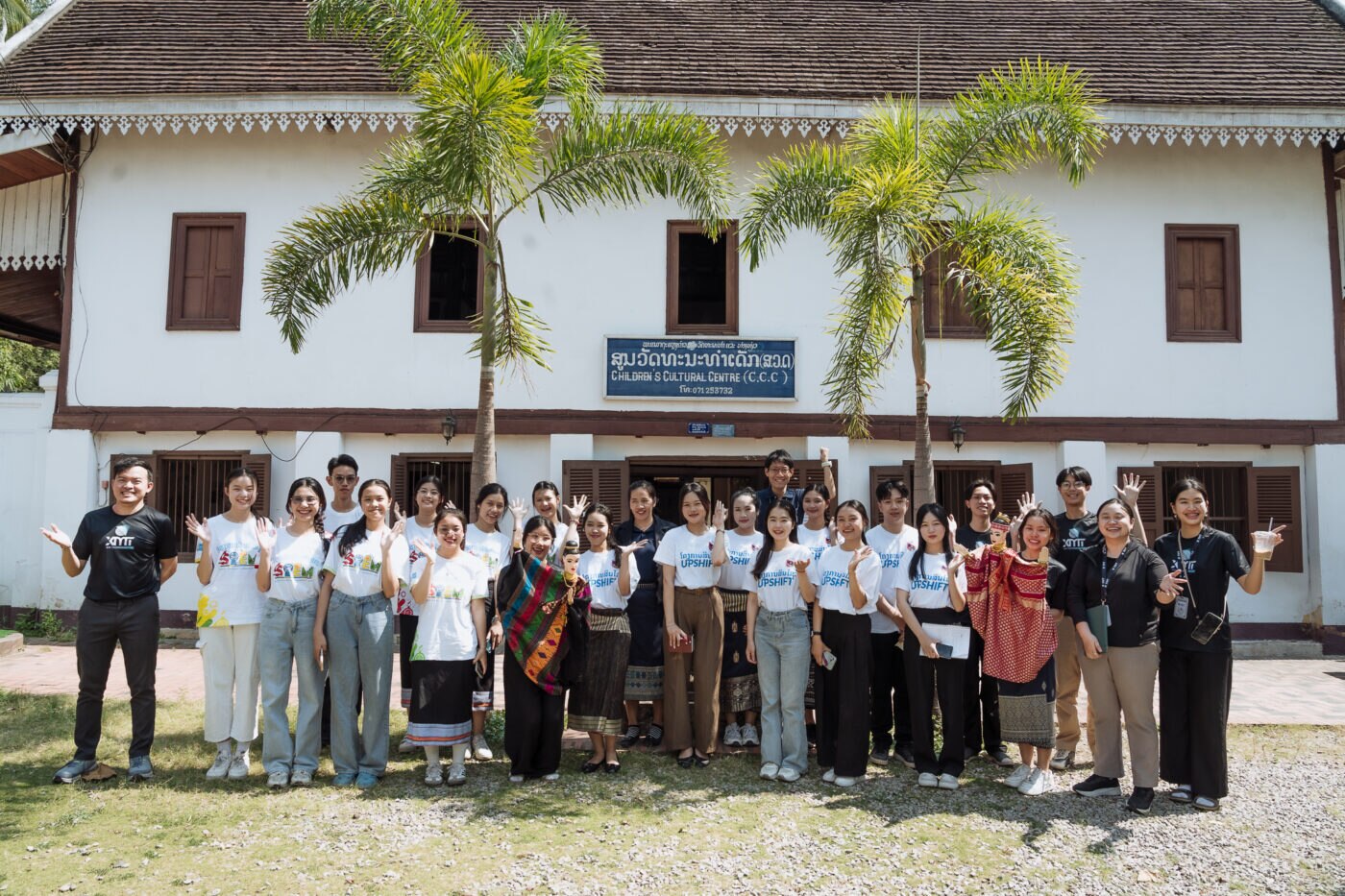
Today, 2.2 billion children are still excluded from the digital economy globally, widening social and economic inequality for the next generation. Since 2015, Arm has been working in partnership with UNICEF to try and bridge this digital divide and transform the lives of children worldwide.
To date, Arm’s ten-year partnership with UNICEF has supported over 770,000 children and their families, while indirectly reaching over 11 million people worldwide. This unique partnership combines Arm’s technology expertise with UNICEF’s global presence in 190 countries and vast experience using real-time data and emerging AI-based technologies in humanitarian responses and development programming.
Arm has supported UNICEF across multiple key innovation and impact projects, primarily through collaborating with the UNICEF Office of Innovation and related programmes. By partnering with the innovation teams, we have created projects that focus on frontier technology solutions, which are scalable, sustainable and open source, to drive system changes to benefit children’s health, education, climate resilience, and data transparency, especially in regions where digital infrastructure is limited.
Impact-based flood modelling
In Malawi, the Arm and UNICEF partnership is enabling the development of impact-based flood modelling software. The AI-based real-time forecasting and early warning system generates alerts for 130,000 people in the country when the set thresholds are exceeded. These alerts – which are sent up to 72 hours before rivers overflow into downstream communities – provide critical information giving communities time to prepare for the flooding and reduce the potential impacts.
Floods in Nana and Issa in the Karonga District of Malawi in the northern tip of the country used to claim multiple lives, while having a devastating impact on their rice-growing community. However, thanks to the forecasting and early warning system, the potential impacts of these floods on both villages have been significantly reduced in the past few years.
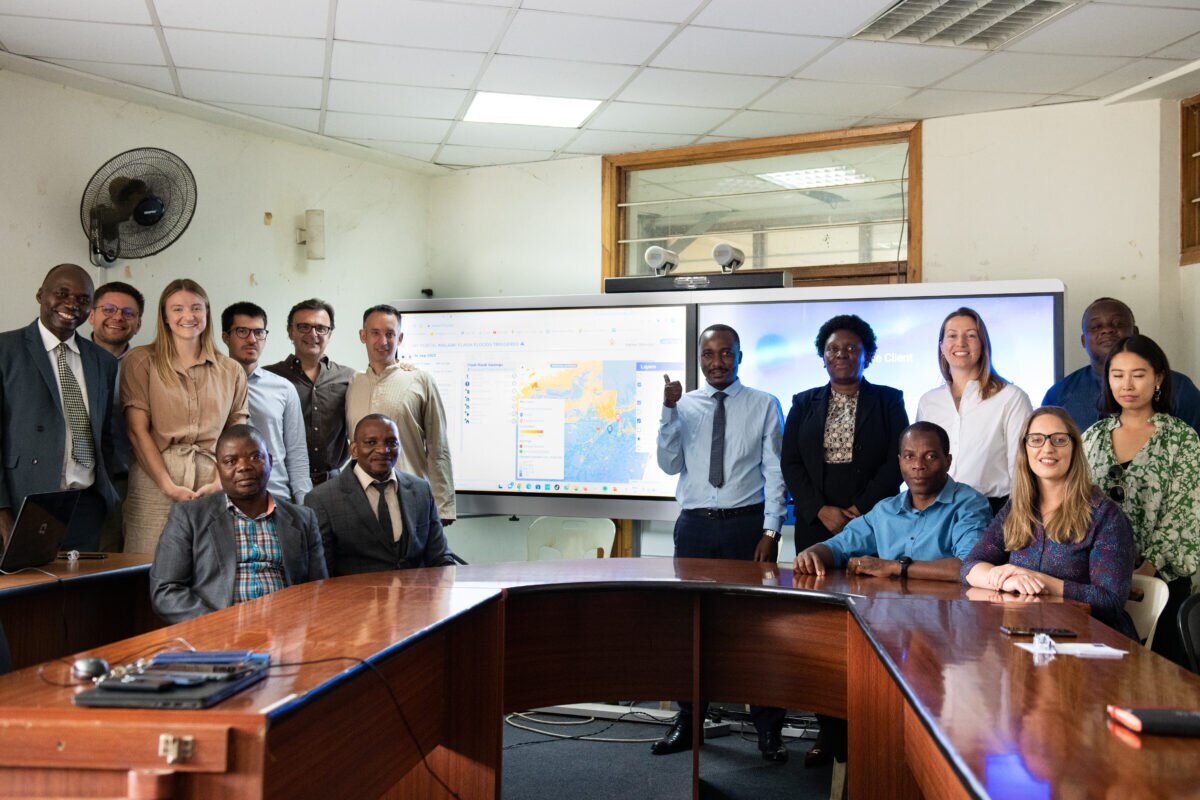
Following this work, the United Nations Development Programme in Malawi has adopted the system for their urban disaster risk reduction and early warning system project. This demonstrates the ability to scale this AI-based intervention, with it having the potential to soon become Malawi’s national early warning system.
Equipping students with technology skills
Elsewhere in Malawi, the partnership is supporting the African Drone and Data Academy (ADDA). This is a center of excellence that equips young people with technology skills – with over 1,400 students already graduating – while strengthening the drone and data ecosystem for more effective humanitarian responses.
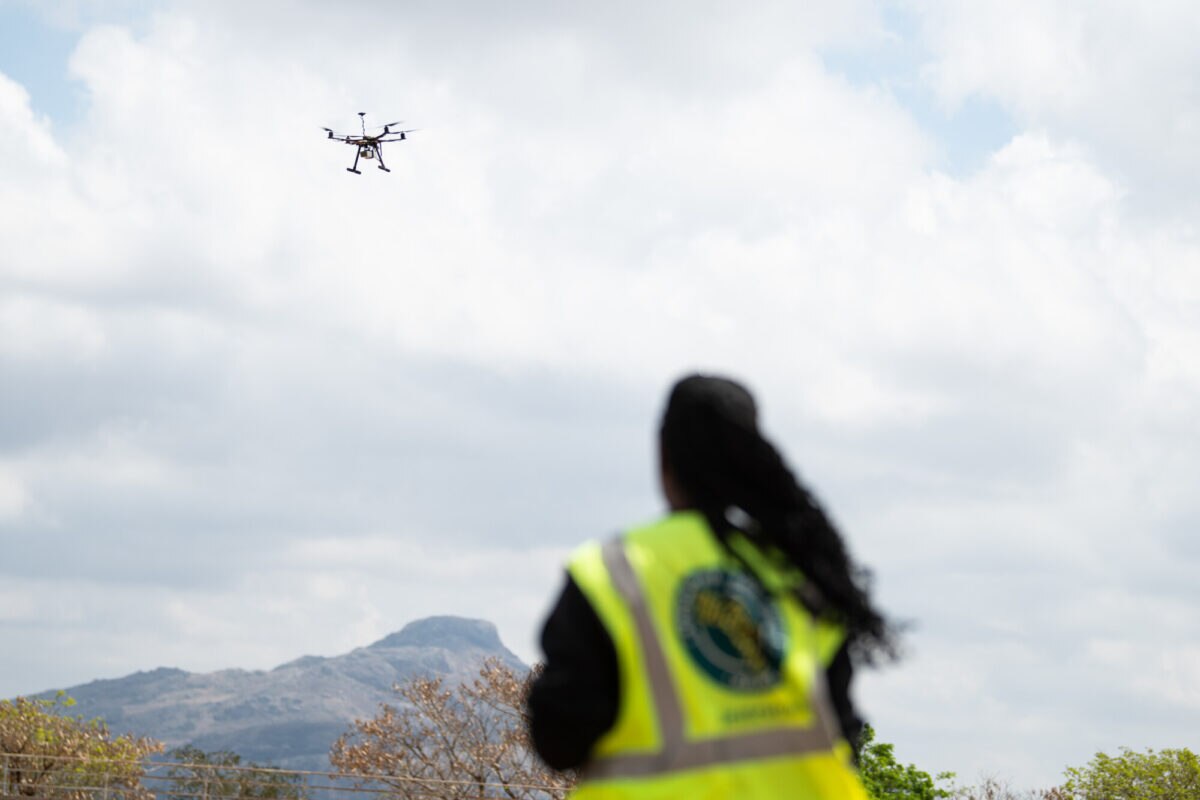
When Tropical Cyclone Freddy hit Malawi in March 2023, eight ADDA instructors and graduates played a critical role in search and rescue operations across 10 districts. They collected aerial imagery for swift damage assessment and provided crucial information to first responders. This helped determine the areas that are most in need of search and rescue support and relief goods. Moreover, a Rapid Drone Response Unit, operated by ADDA, was established as a central hub for data and drone operations for emergencies in Malawi.
Air quality monitoring for children’s health
The Arm and UNICEF partnership also supports an air quality monitoring programme in Laos, where the partnership enables an AI-based open-source air quality model to monitor and predict air quality in certain regions of the country most impact by air pollution. The data collected then helps to identify preventative measures that can protect children’s health in the short and long-term.
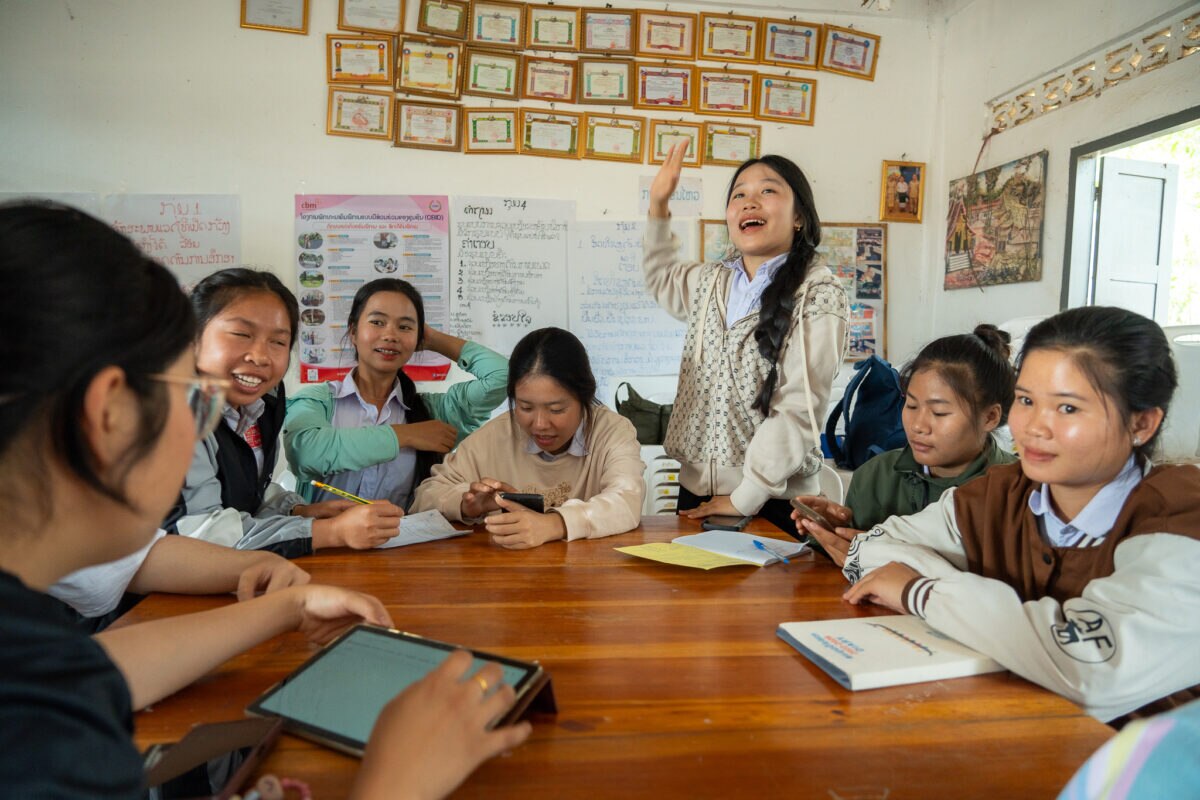
By installing these cutting-edge air quality sensors, mainly in local schools and communities, UNICEF is empowering decision-makers with real-time data to better protect children from harmful pollution with Arm’s support. This technology-driven approach is not only raising awareness about air quality in the local community but also driving policy changes and community action, creating healthier, safer environments where children can breathe easier and thrive.
Technology for inclusive digital learning
Alongside climate responses and health, AI-based technologies are being used as part of education programmes across developing countries. In Indonesia, Arm and UNICEF are supporting the scaling of Bookbot, a gamified app focused on improving pronunciation, comprehension and reading among primary school children. By funding this program, Arm is supporting UNICEF’s efforts to help children improve literacy through real-time, on-device speech recognition technology.
Arm also supports UNICEF’s Global Learning Innovation Hub, which was created to accelerate equitable access to world-class digital learning solutions for children through testing and scaling digital innovations and technologies in partnership with other countries and technology partners. For example, as part of the Tinkering with Tech initiative, which was launched in 2023 by the Global Learning Innovation Hub to provide hands-on experiential learning to students (10- to 16-year-olds) and teachers around future technology skills, Arm-based BBC micro:bit devices (pocket-sized computers for children to learn programming) have been distributed across Honduras, the Maldives, Montenegro and Vietnam to bring experimental play to digital education ambitions. As part of the Global Learning Innovation Hub, the technical expertise of Arm colleagues has been instrumental, from contributing to technical designs to supporting the iterative development and review of EdTech tools.
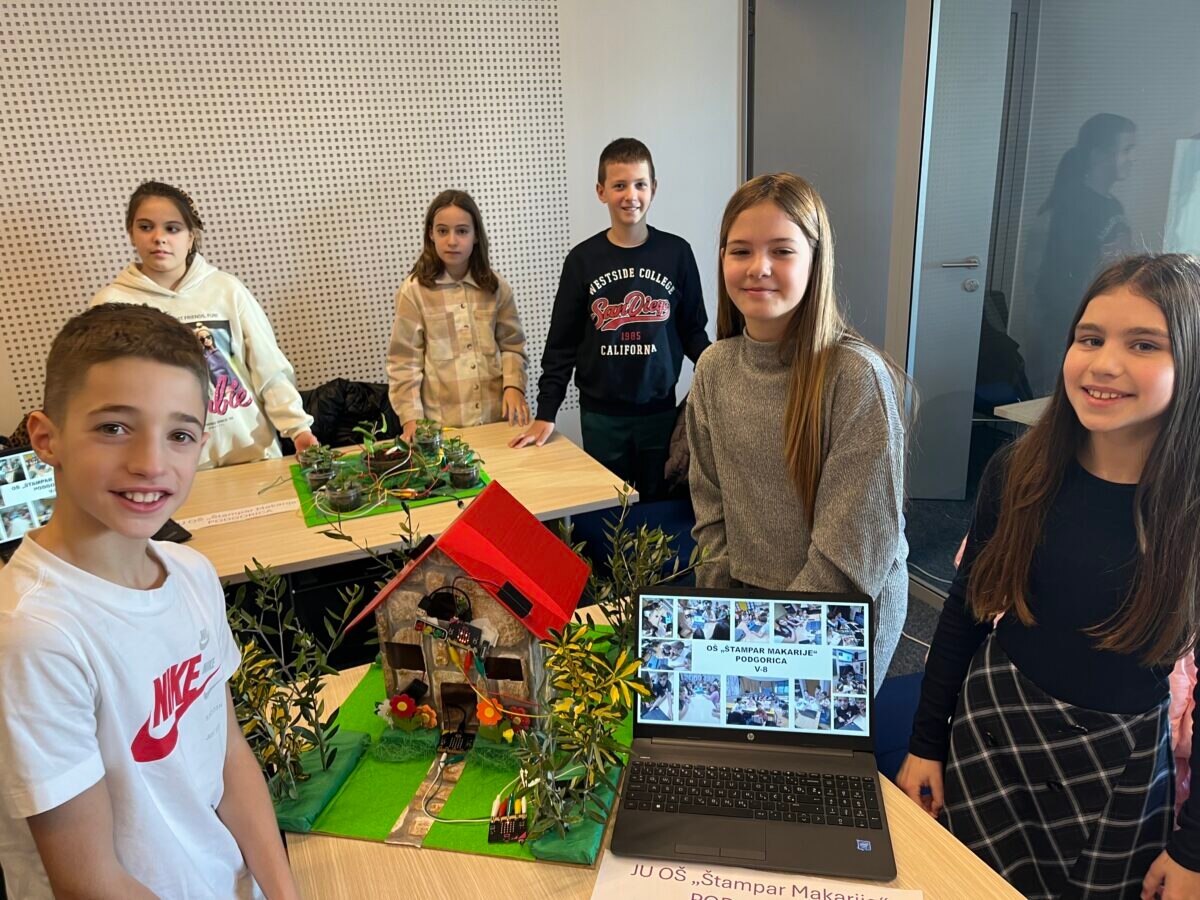
Following successful initial pilots, Arm and UNICEF will be expanding Tinkering with Tech. The next stage is making the initiative available across more developing countries worldwide, with the initiative now also providing adaptable and scalable education packages that can be tailored to these countries and integrated into their education systems. The expansion aims to empower more learners with accessible technology and AI skills, including a new component designed to demystify AI for children to help them understand its fundamentals for ethical, meaningful and safe use.
A transformative partnership
The wide-ranging work of the Arm and UNICEF partnership has provided meaningful impact to children’s lives worldwide, while highlighting the true potential of AI and technology to deliver societal change. At Arm, we believe that technologies are powerful tools that can be used to transform young people’s lives and provide them with the skills and resources needed to shape their own future. We look forward to continuing our work with UNICEF as we advance technology access and inclusion through innovation and programmes that build the future of computing together, for everyone..
Any re-use permitted for informational and non-commercial or personal use only.












